Editorial Policy
We are committed to ensuring the highest standards of academic integrity, quality, and scientific rigor in our conference proceedings. The following editorial policy outlines the key principles and processes applied to all submitted papers.
1. Scope and Focus
Our conference proceedings accept original research, case studies, and review papers relevant to the themes of the conference. Authors are required to follow the submission guidelines, including specific formatting, citation styles, and paper length.
2. Ethics and Integrity
All submissions will undergo a plagiarism check to ensure originality. Authors are responsible for the accuracy and ethical conduct of their work, including the disclosure of any conflicts of interest. Copyright typically remains with the authors, and our proceedings may be published under an open-access model.
3. Peer Review Process
- Initial Screening: Submissions undergo an initial review by the editorial team to ensure they meet the basic standards of quality, relevance, and formatting.
- Double-Blind Peer Review: Each paper is reviewed by at least two independent experts. Both the reviewers and authors remain anonymous throughout the process.
- Reviewer Evaluation: Papers are assessed based on originality, scientific merit, relevance, clarity, and overall contribution to the field.
- Revisions: Authors may be asked to revise their papers based on reviewers’ feedback. Revised papers may be subject to further review.
- Review Timeline: Reviews typically take 4–6 weeks, and authors will be notified of the decision upon completion.
4. Decision-Making
The final decision to accept or reject a paper is made by the editorial team, based on the reviewers’ recommendations and the paper’s relevance to the conference. Authors may appeal rejected papers by contacting the editorial team.
5. Publication and Dissemination
Our proceedings are published in both online and print formats. Papers will be made available via the conference website and may be indexed in leading academic databases such as IEEE Xplore, Scopus, and Google Scholar. Corrections and updates to published papers can be requested if necessary.
6. Conflict of Interest Policy
Authors and reviewers must disclose any conflicts of interest. Reviewers with conflicts, such as personal relationships with authors or direct competition in the research area, will be excluded from the review process.
7. Data and Materials Availability
We encourage authors to share any data, code, or supplementary materials associated with their research to promote transparency and reproducibility.
Conference Scope
The Samudra International Conference on Science and Engineering invites researchers and scholars around the world to submit their best articles to Scopus-indexed proceedings on the following topics.
Topics of interest for submission include:
1. Chemical physics and physical chemistry
2. Biological physics
3. Computational science
4. Environment and Energy
5. Mathematics
6. Engineering (mechanical, civil and industrial applications)

